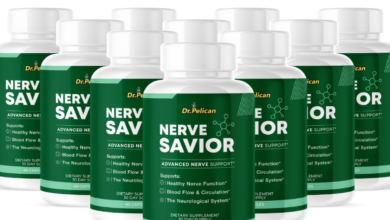In the modern world’s relentless pursuit of productivity and success, the necessity to recuperbate—actively engaging in rest and recovery techniques—often falls by the wayside. Yet, in a world that seldom pauses, understanding and implementing effective Recuperbate strategies is essential to maintaining our mental, physical, and emotional health. This article dives deep into the art of recuperation, exploring its definition, scientific backing, Recuperbate techniques, and how to integrate these practices into our daily lives. Prepare to learn how to recharge your batteries effectively and cultivate a lifestyle that embraces productivity and well-being.
Understanding Recuperbate
What is Recuperbation?
Recuperbate is the conscious and deliberate process of recuperating energy and health through specific rest techniques. Unlike mere relaxation, which can be passive and unstructured, Recuperbate involves active engagement in practices designed to restore vitality and alleviate stress. This distinction is crucial as it elevates Recuperbate from a luxury to a necessity in our daily routines, highlighting its proactive nature.
The Science Behind Recuperbate
Recuperbate benefits are well-supported by scientific research, which links sufficient restorative practices with improved cognitive function, emotional regulation, and overall physical health. Psychoneuroimmunology studies, for instance, demonstrate that stress reduction through deliberate Recuperbate practices can enhance immune system responses and lower the likelihood of illness. Neurological experts suggest that structured downtime, primarily through quality sleep and meditation, can significantly boost brain functionality and creativity.
Techniques for Effective Recuperbate
Physical Recuperation Techniques
Quality sleep is foundational for optimal physical Recuperbate and can significantly enhance it. Adults should aim for 7 to 9 hours of sleep per night, focusing on quantity and quality. Creating an ideal sleeping environment that is dark, quiet, and cool can dramatically improve sleep quality. Regular exercise is another pillar of effective physical recuperation. As recommended by health authorities, engaging in at least 150 minutes of moderate aerobic exercise per week helps reduce stress levels and improve overall sleep quality.
Mental and Emotional Recuperbate Methods
Mental and emotional Recuperbate is crucial for reducing stress and rejuvenating the mind. Mindfulness meditation, for instance, has been shown to reduce anxiety and enhance mood by promoting a state of awareness and presence. Engaging in enjoyable hobbies such as reading, sketching, or gardening can also serve as effective mental Recuperbate techniques, providing a necessary respite from the demands of daily life.
Technological Aids for Recuperbate
In today’s digital age, various technological tools can assist in Recuperbate. Applications like Headspace or Calm offer guided meditations, sleep stories, and breathing exercises that help users decompress and manage stress effectively. Wearable technology, including fitness trackers, can monitor sleep patterns and suggest lifestyle adjustments to enhance recuperation.
Integrating Recuperbate into Your Daily Routine

Creating a Recuperbate Schedule
For effective daily Recuperbate, it is crucial to schedule time for restful practices, just as you would for any other critical activity. This might involve setting aside specific times each day for short meditation sessions or reserving more extended periods each week for activities like yoga or hiking, which aid in recuperation.
Workplace Recuperation
Employers and employees can benefit from incorporating short, frequent breaks into the workday, significantly boosting mental acuity. Progressive companies increasingly recognize the benefits of recuperation, creating programs and spaces that encourage employees to rest briefly throughout their day.
Overcoming Challenges in Recuperbate
Common Obstacles to Effective Recuperation
One major challenge to effective Recuperbate is the perception of time scarcity—there never seems to be enough time to recuperate properly. Recognizing the signs of burnout and understanding the substantial benefits of recuperation can make it easier to prioritize these practices. Feeling guilty for taking time to recuperate is common in our productivity-driven culture. Still, realizing that sustainable output requires regular input in the form of rest is essential for recuperation.
Advanced Tips and Tricks
Starting small can make a big difference for those finding it difficult to implement effective recuperation practices. Even five minutes of deep breathing or a brief walk can be beneficial. Tailoring recuperation techniques to personal interests and lifestyles can also increase their effectiveness and ensure they are more enjoyable and sustainable.
Conclusion
Recuperation is not merely a luxury; it is an essential component of a healthy lifestyle. By taking proactive steps to incorporate recuperation into our daily routines, we can enhance our productivity, improve our health, and enjoy a more balanced life. Remember, the key to successful recuperation is consistency and personalization—find what works for you and make it a regular part of your life.
FAQs
Q: What is the quickest method to recuperbate?
A: Quick recuperation methods include deep breathing exercises, short naps, or engaging in a hobby for a few minutes. These can significantly boost your energy levels in a short period.
Q: How often should one engage in recuperation techniques?
A: Ideally, daily. Even brief sessions of recuperation each day can improve overall well-being and productivity.
Q: Can recuperbation techniques vary based on individual needs?
A: Absolutely! Effective recuperation is highly personal. What works for one person might not work for another. Experimenting with different techniques is essential to finding what best suits your lifestyle and needs.
Q: Are there specific recuperation techniques recommended for workplace stress?
A: Yes, techniques such as taking scheduled breaks, practicing mindfulness, and utilizing apps designed to reduce stress can be particularly effective in the workplace.
Q: What are some signs that I’m not recuperbating effectively?
A: Signs of inadequate recuperation include persistent fatigue, irritability, decreased productivity, and a general feeling of being unwell. If you experience these symptoms, it may be time to revamp your recuperation strategies.
You May Also Read: https://businessworknews.com/smart-square-wellstar/

